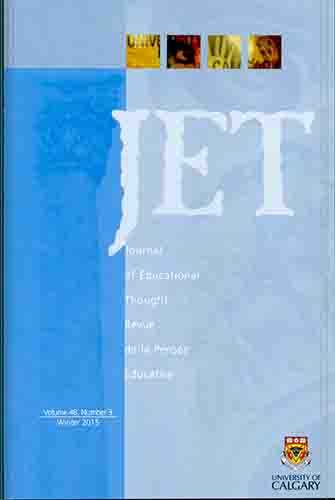The Sphinx of American Education: Ralph Tyler's Peculiar Relationship with Standardized Testing
DOI:
https://doi.org/10.55016/ojs/jet.v48i3.44250Abstract
Standardized testing currently dominates the American educational landscape. Federal and state policy makers use standardized tests as the primary means to evaluate school performance, resulting in schools narrowing their curriculum toward experiences specifically aimed toward improving test scores. Ralph Tyler, the renowned evaluation expert from the twentieth century, had much to say about how standardized tests should be used, with warnings about the detrimental effects that ill-advised use of these tests can have on the school experience. Yet, his advice on tests garner little attention by policy makers and the public writ large. In this article, I examine Tyler's advice about how tests should be used in the school experience and then explore how Tyler's Rationale for educational evaluation may actually be linked to the contemporary paradigm that embraces high stakes testing. Although Tyler's Rationale never endorsed high stakes assessments, policy makers and educational evaluators alike, in the wake of the contemporary standards and accountability movement and the spirit of social efficiency, use the linearity of Tyler's Rationale for educational evaluation to justify the wide and farreaching use of standardized testing. These policy makers, I discuss, should strongly consider Tyler's warnings about the misuse of standardized testing in the evaluation of a school curriculum.
Downloads
Published
Issue
Section
License
The Journal of Educational Thought retains first publication rights for all articles. The Journal grants reproduction rights for noncommercial educational purposes with the provision that full acknowledgement of the work’s source be noted on each copy. The Journal will redirect to the appropriate authors any inquiries for further commercial publication of individual articles. All authors wishing to publish in JET will be asked to fill in and sign a Consent to Publish and Transfer of Copyright agreement.
Authors must affirm that any submission to JET has not been and will not be published or submitted elsewhere while under considration by JET.

